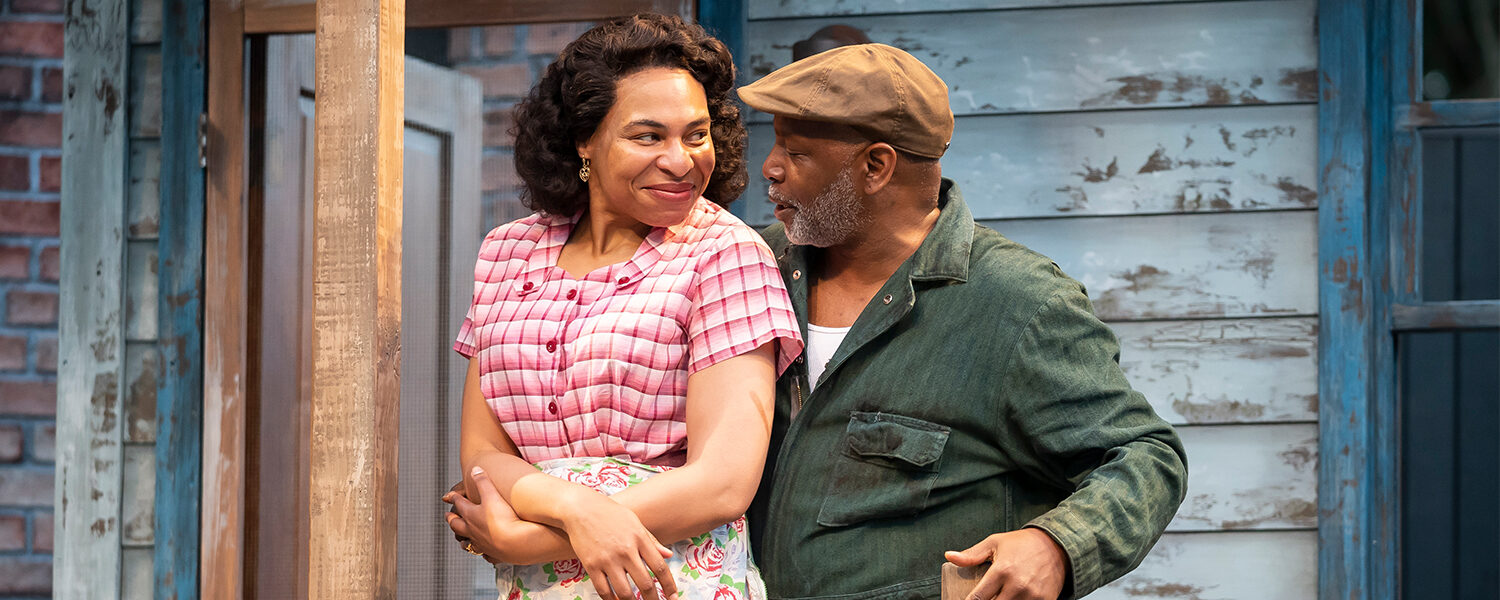Contact Us
American Players Theatre
5950 Golf Course Road
P.O. Box 819
Spring Green, WI 53588
(Map)
Box Office: 608-588-2361
Administration: 608-588-7401
Fax: 608-588-7085
American Players Theatre
5950 Golf Course Road
P.O. Box 819
Spring Green, WI 53588
(Map)
Box Office: 608-588-2361
Administration: 608-588-7401
Fax: 608-588-7085

By Robert Chappell, Madison365.com, September 2, 2019
Change is as inevitable as it is frightening.
That’s the central theme of August Wilson’s Fences, running through September 28 at American Players Theater in Spring Green, directed by Ron OJ Parson.
The play is one of the 10 plays in Wilson’s seminal Pittsburgh Cycle, which chronicles the African American experience through each decade of the Twentieth Century. It takes place in the 1950s, an era of profound change in the United States as postwar prosperity created a new urbanism for some, but left others behind thanks to lingering racism and Jim Crow laws.
The story centers on Troy Maxson, a 53-year-old garbage collector struggling with disappointment in his two sons, the burden of caring for a brother disabled by a war injury, dreams of a baseball career that could have been and a wife who just wants to hold her little family together.
The entire play takes place in the Maxsons’ backyard, where Troy and his teenage son Cory have spent months building a fence, one small section at a time. The fence is a not-very-subtle metaphor, of course; while Troy’s wife Rose wants the fence to keep people in — to keep her family together and healthy and happy — Troy is more concerned about keeping the encroaching modern urban world out. That feeling of encroaching modernism is clear in the text and also manifests in Shaun Motley’s gorgeous set, as towering brick buildings with amber-glowing windows loom menacingly over the Maxsons’ small clapboard house and its peeling paint.
Troy is a gadfly, a larger-than-life storyteller, a man who takes up all the oxygen in the room. He’s charismatic, the kind of guy everybody likes but who’s very difficult to love. He was a power hitter in Negro League baseball but never got a chance in the segregated big leagues. Even though he clearly exaggerates some of his baseball exploits, he is believable as a former elite athlete, thanks in large part to the performance of David Alan Anderson, who carries Troy with a raw physicality that’s hard to ignore.
As Troy, Anderson knocks it out of the park farther than Troy would hit a hanging curveball. He is an absolutely magnetic presence on stage, and creates a deep and troubling contradiction in the audience — you can’t help but like him, even as he says and does kind of terrible things. You can feel the tension in his muscles as Troy struggles to control things he has no business controlling, including his own past and the futures of his children.